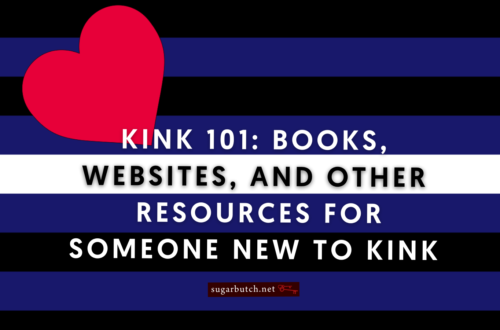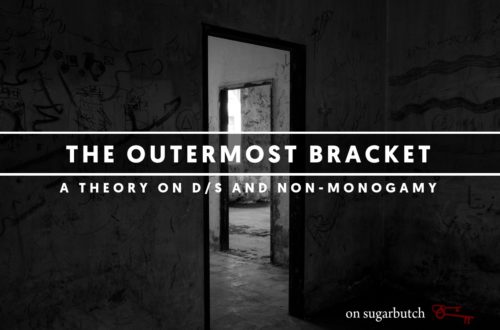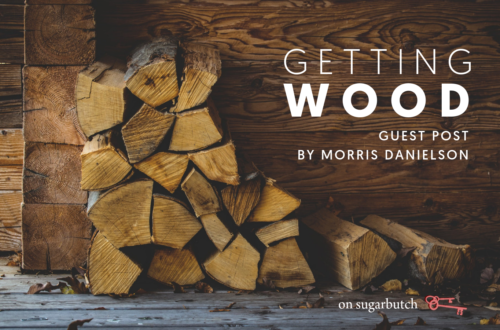This site contains explicit writings on kink practices, dominant/submissive relationships, and queer kink erotica (among other things). All characters in role play or non-consent scenes are consenting adults. Content warnings are included.
1. What insight about open relationships do you wish you had when you started?
That no matter how progressive your family might be, they might have a very difficult time accepting plural relationships. In my adulthood, I’ve only had one protracted fight or falling-out with my mother, and it was over my concurrent relationships with two men. Her inability to understand came out as disgust and it hurt me tremendously for quite some time. Also, that you yourself must want that type of love in your life – don’t ever get into it because of someone else’s ultimatum.
2. What has been the hardest thing about opening your relationship, and how have you overcome that?
Initially, when I began, it was pretty much a neverending onslaught upon my sense of security and self worth. Living in a world that upholds monogamy as the ultimate form of love really shapes the way you view loving and being loved — when someone doesn’t approach you and your relationship in the de facto ways, it can be very disorienting and scary. I struggled a great deal with jealousy, but much of that had to do with my (at the time) primary partner’s adherence to the old adage “it’s easier to beg forgiveness than it is to ask permission”. I felt like a lot of stuff happened without consulting me first, and that my concerns about partner selection were not being heard. In the end, I suppose I overcame that by not remaining with that partner. He was a lovely person who was not a good partnership fit for me — acquiring the knowledge that you can love and respect someone a great deal but not “fit” with them was a real eye-opener.
3. What has been the best thing about your open relationship?
It forced a great deal of introspection in my early/mid 20s. I learned myself, my emotional patterns and my weaknesses very, very well. Through a great deal of reading (I’m particularly partial to Tristan Taormino’s “Opening Up”), I learned a tremendous amount about non-violent communication. How to know what I wanted or needed and how to ask for it without resorting to passive aggression (or straight-up aggression) has been a boon to literally every other aspect of my life, too.
4. Anything else you’d like to add?
I’m no longer actively nonmonogamous. In short order, I’m marrying the person who was, for several years, my secondary partner. Meeting each other on the terms of an atypical relationship structure forced us to communicate on a different level than if we had met each other as single people. There was a lot of deep discussion that might not otherwise have happened at such early stages. The raw honesty that was required forged an incredibly solid bond between the two of us. We’re certainly keeping ourselves open in theory if not in active practice, as we feel it stops us from lapsing into bored complacency. There’s a bit of a safety valve built in there, too. If we become infatuated with someone else, knowing we can talk to each other about it and possibly negotiate for a very happy conclusion really takes some of the pressure off of a long-term commitment to each other. It’s very unlikely either of us would run off with a sexy coworker or what have you, if we acknowledge the truth fluidity of desire within a long-term relationship.




I’ve really been enjoying this series. It’s interesting to see the continuities as well as the diverse perspectives and experiences. Perhaps long-term queer relationships could be the subject of a future series.
That’s a great idea—advice from couples, open or not, who have been together long term … what would that be, five years? ten? eight? I’ll think about that. Glad you are enjoying the series!
“… acquiring the knowledge that you can love and respect someone a great deal but not “fit” with them was a real eye-opener.”
Yes, yes, yes. This is a great lesson learned.